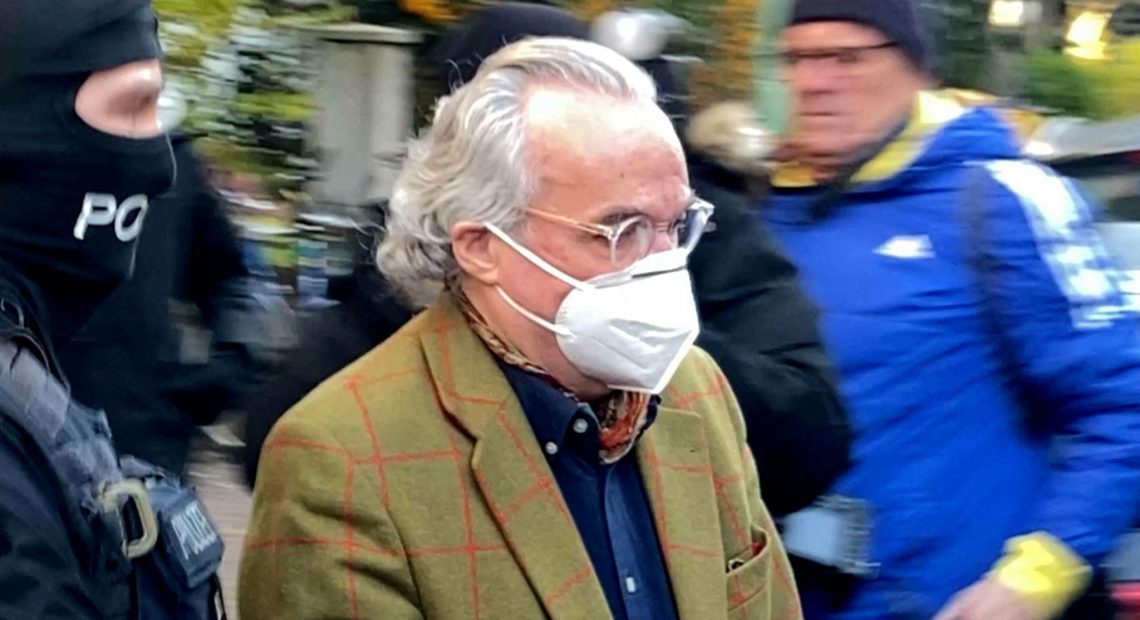German group accused of plotting coup go on trial

In Germany, trials have begun for individuals allegedly connected to a coup plot involving a German aristocrat, a significant arsenal of weapons, and the belief that Queen Elizabeth II’s death was a covert “signal” to act. These individuals are associated with the Reichsbürger movement, which denies the legitimacy of the modern German state, claiming it was installed by the Allied powers after World War II.
The most high-profile trial is taking place in Frankfurt, following extensive raids across the country in 2022. This trial, one of three, is crucial for understanding far-right networks due to its scale and potential insights.
The Reichsbürger movement, comprising around 23,000 followers, espouses antisemitic views and a strong affinity for weapons. Authorities allege that members plotted to violently overthrow the German government, planning to storm the national parliament in Berlin and arrest MPs on a so-called “Day X”. The indictment suggests they even debated if Queen Elizabeth II’s death was a signal to act.
A key figure in the trial is Heinrich XIII Prince Reuss, a 72-year-old former real estate developer from Frankfurt and a descendant of the aristocratic House of Reuss. He allegedly hosted the group’s ‘central council’ meetings and was designated as the future ‘head of state’ post-coup. He was also reportedly involved in attempts to establish contact with Moscow, appearing at the Russian consulate in Leipzig.
Another notable defendant is Birgit Malsack-Winkemann, a former judge and member of the far-right Alternative for Deutschland party. She allegedly used her parliamentary access to help co-conspirators scout government buildings and was slated to manage the justice department in the new regime.
Prosecutors claim the group intended to reorganize Germany’s political structure by taking over institutions at both state and local levels, aware that this might require violence. Their central council would have coordinated these efforts, supported by a ‘military arm’ comprising 286 units tasked with enforcing the new order nationwide.
The indictment reveals the group’s access to a substantial cache of weapons, including firearms, ammunition, night vision devices, and handcuffs, and financial resources of around 500,000 euros. Members reportedly became increasingly isolated from the outside world over time.
Jan Rathje, a senior researcher at the extremism monitoring agency CeMAS, notes that such conspiratorial, sovereigntist movements trace back to desires among some former Nazis to reestablish a National Socialist German Reich. He warns that the Reichsbürger movement, with its violent far-right tradition, has been dangerously underestimated, emphasizing that, despite the coup’s likely failure, it could have caused significant harm. The symbolic impact of a violent strike against the government could have emboldened radical forces by portraying the government as weak.
The trials are being conducted in Stuttgart, Frankfurt, and Munich due to the case’s complexity and size.
Picture Courtesy: Google/images are subject to copyright
